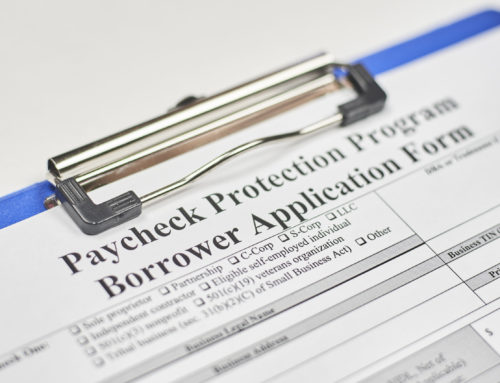Managing Cash in a Crisis…and Beyond
While business owners right now are most worried about the health of their employees and their loved ones, they also can’t help but think about their business and how it will survive this sudden disruption. For some, the doors are closed for an undetermined amount of time. For others, operations continue, but look significantly different than they did a year ago or even a month ago. There is a high likelihood of a substantial revenue disruption which could lead to a potential liquidity crisis for many. Recovery may not be quick, and many businesses need to plan now for multiple quarters of lower revenue. Bold action now to plan for a variety of possible outcomes, some of which are more aggressive than anyone can imagine right now, can set you up for success through the crisis and beyond. While our people and their health are important, without cash and profits we can’t take care of people.
One advantage that small to medium size businesses have is the ability to move quickly when needed. Planning for what the current crisis means to your business should be well underway and the actions you need to take need to be done in days, not weeks – there is and will be impact, so the time to act is now. The biggest mistakes we see time and time again when a business is in crisis mode, is that the actions taken to mitigate the effects from the crisis are not taken fast enough and don’t go far enough.
Here are some tips for managing cash in your business. Some of these may also apply to individuals as well:
Accounts Receivable
- Focus on collections and reducing the average number of days it takes to collect your receivables
- Contact customers even before the payment is due to make sure the payment is scheduled to be made and there are no possible billing disputes that you are unaware of. Do not let this become a conflict avoidance issue. Remember you are in business and the collection process, done professionally, can be painless – most of the time!
- Require payments up front when possible
- Review and monitor accounts receivable aging reports and resolve any billing disputes quickly
- Get retainers/deposits before doing work when possible
- Require payment upon delivery of the product or service
- Offer discounts to pay sooner
- Ask for installment payments, preferably automatically charged to their credit card, if they can’t pay the entire balance
- Accept payments via credit card
- Consider utilizing an automatic credit card payment system where you can automatically charge your clients credit card for your invoices and, where possible, consider annualizing the services you provide to your clients and charging them a fixed fee on their credit card each month
- Evaluate your client’s credit before extending credit to them and monitor your clients on an ongoing basis for any changes in their creditworthiness
Accounts Payable
- Extend payments to vendors
- Negotiate better terms (discounts and payment dates) with vendors
Reduce Expenses
- Negotiate better pricing for goods and services you buy – remember there are all kinds of ways to purchase various goods and services – at different prices.
- Reduce or eliminate all non-essential spending such as travel, training, meals and entertainment, marketing, and advertising
- Postpone planned improvements, upgrades, and large purchases
- Consider leasing essential new equipment rather than purchasing outright
- Evaluate the use of internal supplies – conserve and eliminate where possible and reduce your stock before ordering more
- Order smaller quantities of supplies to keep on hand – get lean
- Negotiate lower rates or reduced levels of services with various service providers such as phone and internet
- Consider opportunities to barter – If you have a good relationship with a service provider, ask whether it would let you “pay” with your product or service, but be sure to keep records of these arrangements for tax purposes
- Reduce energy consumption where possible
- Right size operations to a smaller core
- Ramp up/down manufacturing efforts to meet changing customer supply needs
- Consider permanent shut down of underperforming business units/geographies/sales channels
- Consider adjusting operating hours (or temporary store closures)
- Reduce inventory levels and sell for a discount any slow-moving inventory
- Have a budget for expenses at various revenue levels and put someone in charge of each budget line item to ensure there is accountability and someone is managing expenses in each line item.
- Personnel
- Consider not replacing positions that are open or become open
- Eliminate non-essential duties, tasks and functions so you can do more with less such as less internal meetings that take up time or eliminating certain reports that are produced or processes that are done that are not essential during this time
- Create an organizational chart for what your business would look like at various levels of pre-crisis revenue (i.e. 75%, 50%, 25%)
- Reduce or eliminate non-essential employee benefits and perks
- Consider the need for layoffs, furloughs, and pay cuts and categorize your employees now in various categories so you are ready to make the tough decisions quickly if and when the time comes
- Right size your general and administrative costs by reducing management and other positions that do not directly correlate to revenue production
- Keep your spending at less than your revenue and don’t assume if you spend money first that the revenue will then come
Debt and Leases
- Work with your landlord to reduce rents and/or defer rent payments
- While a move may be expensive, if you need to downsize it may make sense if the rent savings is substantial enough
- Consider subleasing any unused space
- Work with your bank to increase or establish a line of credit
- Consider the cost of taking all available cash from your line of credit even if it is not needed as banks are sometimes known to freeze lines of credit when crisis strikes
- Refinance debt to reduce the interest rate and/or extend the repayment term to reduce the payments required
- Ask your bank for a payment holiday or to pay interest only for a month or two – use this wisely as you will likely only get it once
- Apply for an SBA (small business administration) emergency loan being offered due to the current crisis – currently being offered up to $2 million with a repayment term of up to 30 years
- If you already have an SBA loan, they have a program where you can defer payments for up to 6 months – contact your loan servicer
- Be careful that any additional debt you take on is used wisely because adding debt only provides a short-term solution to what might be a chronic problem of reigning in expenses to the revenue that your business is producing which, if left unchecked, will cause even bigger cash flow problems in the future
Financial Management
- Develop a cash flow projection and income projections at various levels of pre-crisis revenue (i.e. 75%, 50%, 25%) and manage your expenses to those projections
- Actively manage liquidity and your balance sheet
- Managing cash flow is a daily discipline depending on how severe your cash flow situation is. Develop key performance indicators or metrics. Have a dashboard that you can dial up when needed or dial back when not needed as much. This includes monitoring incoming orders, shipments, deposits, each receivable, bank balance, when you pay payroll, when you pay yourself, and each of your payables.
- Sell unneeded assets or rarely used assets; it may make sense to sell them and rent something on an as-needed basis
- Stay on top of changes coming out from federal and state governments and take advantage of opportunities to defer income tax payments, payroll tax payments, sales tax payments, etc. as well as opportunities for additional emergency loans, some of which are forgivable over time if you maintain defined payroll levels
Sales
- Determine if there are new lines of business you can go into without a large cash investment that are in demand especially during the crisis and beyond
- Offer discounts for sales during the crisis, such as a percentage or dollar amount off for sales in April 2020
- Price appropriately even if business is slow. You still have to say ‘no’ to customers and projects that don’t make sense financially. Otherwise, it will just further harm your cash flow.
The restrictions you may feel from tight spending and trying to make do with less is far less than the anxiety produced by severe cash flow issues. Additionally, taking these steps may be viewed as a good opportunity to fine-tune processes and identify waste and unnecessary expenses that will help strengthen your business even after the crisis is over.
We are here to help and to be a sounding board and advisor as you try to navigate the business and economic effects of this crisis.







